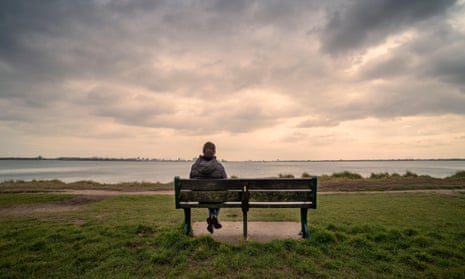As a clinical psychologist who specializes in friendships and social connection, I am deeply concerned about the feelings of loneliness that so many of us are experiencing.
Three in five American adults report feeling lonely and 18% (roughly 46 million people) report that they have just one person or nobody that they can trust or turn to for help in their personal lives. These worrisome numbers are echoed across studies and across borders.
These statistics are also brought to life in my therapy practice and work on friendship, where I hear first-hand from people who find themselves feeling distanced and isolated, or grieving the loss of a relationship, many of which have been strained over the last year.
This longing is not without consequence. Loneliness is literally bad for our health. Research has sounded the alarm: loneliness directly impacts our mental health and contributes to symptoms of anxiety and depression. It has also been linked to a lowered immune response and cognitive functioning and an increased risk of chronic health conditions including high blood pressure. It’s even been found that loneliness may be as damaging to our health as smoking 15 cigarettes a day. Loneliness seems to be one of the strongest predictors of morbidity and mortality – how sick we are and how long we live.
There’s little doubt that the necessity of social distancing has contributed to our recent collective loneliness. But loneliness existed long before the current pandemic. As a psychologist, I’m privy to many of the beliefs that contribute to feelings of isolation, including the idea that loneliness is necessarily related to the size of our social networks or the extent to which we are surrounded by others. In reality, loneliness has less to do with being alone and much more to do with the experience of feeling unseen.
It is the quality, not quantity, of our relationships that fulfills our need for connectedness. And when we equate aloneness to loneliness, we act in ways that further our feelings of disconnection. We hold on to relationships that are imbalanced, draining, or unhealthy. We prioritize likes and follower counts over meaningful, reciprocated connections. We tiptoe around conflicts, instead of addressing them in constructive ways. We overlook our need for alone time, which is restorative (and not just for introverts). And we insert ourselves into social situations that make us feel uncomfortable, unsafe and unheard (something to think about as we begin to re-enter social gatherings).
At the same time, we retreat from experiences that actually help us to cultivate intimacy and contribute to quality connections. We find it difficult to disclose our struggles along with our successes; we often assume that this discomfort is a sign that sharing is inappropriate or undeserved and so instead we grieve, suffer, heal, and even celebrate alone. We avoid setting boundaries or asserting our needs because we fear pushing others away. We are silenced by shame or, alternatively, we wear our willingness to “go it alone” as a badge of resilience, overlooking the bravery and meaning found in vulnerability.
Together, these actions do little to help us overcome feelings of loneliness. Sure, we might find ourselves surrounded by others, but we’re likely to feel even more alone – emotional distance is often far more damaging than physical separation.
If we are to address our experiences of loneliness, we must challenge our beliefs about loneliness itself, including the narrative that being alone necessarily means feeling lonely and that authenticity and vulnerability are overrated or unimportant. Perhaps the most powerful approach is to simply talk about it – with each other. Just as the belief that aloneness-is-loneliness is ever-present, so too is the (wildly inaccurate) idea that we are alone in our feelings of loneliness.
There’s some encouraging news, however. Lately people do seem more willing to talk about our widespread loneliness. Dr Vivek Murthy, the US surgeon general, shed light on the consequences of loneliness along with the necessity of social ties in his book Together. The UK has appointed a minister for loneliness. The actor Jamie Lee Curtis recently launched a podcast, Good Friend, devoted to the topic of friendship challenges. In my own practice, I’m increasingly asked to provide friendship therapy as many of us begin to prioritize our need for close friendships in new ways.
As much as it makes us feel alone, loneliness is a shared experience. The more we can normalize and humanize, even befriend, these feelings, the better able we are to meaningfully connect. Instead of reacting to loneliness with shame or judgment, let us approach ourselves and each other with compassion. Let us work to see the inherent value in loneliness: it is not something to judge, ignore, or find shame in; it exists to remind us of our universal need for connection. Finally, let us recognize that the onus for addressing loneliness cannot and should not be placed solely on the person who is struggling.
We need to get better at both nuance (“How are you doing, really?” is not the same as a cursory “How are you?”) and directness (“What have you been struggling with or celebrating, lately?”, “I’m feeling lonely. Is this something you can relate to?”, “How can I help you feel more connected?”). And, when someone asks us these same questions (and if it feels safe – vulnerability is only helpful when it is voluntary), let us practice answering beyond our canned, reflexive responses.
If we are to work through our feelings of loneliness, we must learn to ask and to listen, both to others and to ourselves. This is what will help us sort out the difference between being alone and feeling lonely.
Dr Miriam Kirmayer is a clinical psychologist, friendship expert, writer and speaker
